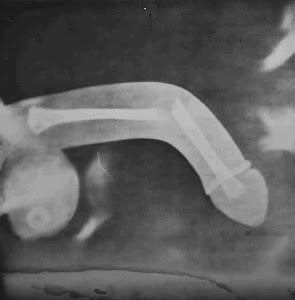Several weeks ago I was headed to the “Chapare” (the tropical region of Cochabamba) with some friends of mine who were visiting from the US. The Chapare is a local touristic tropical town where many like to go down to get out of the altitude to see the tropical fauna, fish and relax. The Chapare also has yet another fame (or shall I call it an infamy) and that is that it is a non-traditional growing zone for coca. Coca is the plant from which cocaine is made from. Now to be fair the Bolivian natives have been chewing the coca leaf for like a Brazilian years! (Joke) Seriously though it was a pre-Columbian product which was shipped around the Incan empire and was (still is) consumed on a daily basis. For those of you who are not familiar with coca the simple chewing of the leaf give you no more of an effect than drinking coffee in the am. It takes something to the tune of several bales of coca to make a couple of grams of cocaine. Now I say that the Chapare is a non-traditional growing zone is because the traditional zone here in Bolivia has always been in a place called “Los Yungas” which is the tropical zone of La Paz. The Chapare became a growing zone sometime in the early to mid 1970’s if I am not mistaken. As the matter of fact for you movie buffs if you saw the movie Scare Face there is a scene where a guy gets pushed out of a helicopter over and into a jungle. The subtitles say “Cochabamba, Bolivia” which is actually the Chapare region.
Anyway back to my story. As we were headed down to Villa Tunari, the main population center of the Chapare, saw something rather interesting. I saw a little old woman drying coca leaves on the side of the road. The reason this was interesting is that 3-5 years ago this was unheard of. I do not go to the Chapare that often. As the matter of fact the last time I was down there before my visit with my friends was about 5 years ago and at that time the coca harvest was strictly controlled. So the cultivation of coca was almost all but prohibited in this region. You can understand my surprise to see the blatant cultivation of coca on the side of the road whereas before this was done way deep in the jungle far from the prying eyes of the Narco Police.
Why this is happening is that we have had a president who sympathizes with the coca growers of Bolivia. As the matter of fact he used to be a coca grower himself. He just finished his first term and was just re-elected this last Sunday for a term of office which is for the next 5 years.
I was just talking to a friend of mine who just got back from Argentina yesterday. While he was there he said that the local Narcs caught a barge headed for the open seas that contained 5 metric tons of cocaine in in the River Plate. This is the estuary that divides Northern Argentina from Southern Uruguay. It is pretty obvious from where this came from. Since Mr. Evo Morales has kicked out the American DEA from Bolivia I was told that most of their operations would be concentrated in the countries around Bolivia to catch it coming out. But as I see it this is like the little Dutch boy trying to stop a leak in a dike while the storm is raging. As a result there has been a huge economy boom in Bolivia. It is no wonder why Mr. Morales had a landslide victory.
Once again to be fair the drug trade is not new to power building as a mechanism. The US economy would collapse completely if it were not for the drug trade. I am told that the largest cash crop in the US is Marijuana. Then there all those “party drugs” that both Americans and Europeans can’t seem to live without.
If you go back in history you will see that the largest (official) Empire the planet has ever known was fueled for a large part by a drug trade. When people think of opium most will think of a Chinese drug. But it is not very popularly known that most of the opium consumed in the 18th and 19th centuries in China was cultivated and refined in India. It was the British companies and merchants who then shipped it into China. China came to a point that its officials said opium was degenerate and made the importation illegal. British reaction to this was to reject this ordinance. They then started sailing frigates up and down the Yellow River blasting every port town in site. These activities became known as the First and Second Opium Wars. It kind of brings our beloved American Revolution into context. How much money was the British Empire really profiting off of 13 small colonies? There was some money coming out of agricultural trade but did it justify the costs of the military presence that the British had there or even all the local conflicts with the other local colonial powers? I mean they could not even make any money off of tea there! So when the thirteen colonies rebelled it seems it was just a matter of pride for the British to keep their holdings in North America. I am willing to bet that at this time the income from the Far East mammothed what was coming out of North America. The king I believe it was George at the time must have said “It is just not worth fighting over, is it? We’ve got something much nicer in the orient. Let them go….perhaps we’ll try back again in 1812.” Ah but what a glorious revolution it was for us Americans!
After looking at historical and modern economies I am finding it difficult to see how it is correct for both North American and European powers to put pressure on the supply end of the market of a small impoverished country like Bolivia when they are doing very little to curb their own appetites. I only see hypocrisy in the way that these major powers after profiting so much themselves off of the drug trade when they put pressure on one of the poorest countries on the southern hemisphere. If the US were to put as much money as they have out into the “Drug War” into neighborhood rehabilitation centers and centers for children at risk I don’t think that the drug trade in the US or anywhere else would look like it does now. But then again this is not profitable is it? Where there is a supply there is a demand. Also please don’t get me wrong. I have high respect for those out on the street putting their lives at risk in Law enforcement. The decisions need to be made from the top. We as citizens need to support those who are willing to look out for the public of their countries. We may say we do not sin as we are not direct consumers so we do not commit the sin of commission but many times we do not support those who are willing to do things directly in our community and this is a sin of omission. The community around us is all we have and we need to find ways of protecting and making it better. It is our responsibility. We cannot go on putting the blame on impoverished countries half a world away. The problem is on your doorstep.
Peace be with you.
FeO2
Three Religiions

Facing the wall











